Easy Commercial Solar Installation in Toronto and the GTA
Dean Emerick
May 30, 2023
.png)
Considering an easy commercial solar installation in Toronto and the GTA? This article will simplify the process for you. We break down each step, from the initial consultation to the final installation. So you can smoothly transition to solar power and enjoy its financial and environmental benefits.
Key Takeaways
- Commercial solar installations in Toronto provide significant financial benefits, including reduced energy costs and long-term savings, while also enhancing environmental responsibility.
- The installation process involves key steps such as site assessment, system design, and permitting, which are essential for maximizing efficiency and compliance.
- Financial incentives like the Clean Technology Investment Tax Credit and the Canada Greener Homes Initiative can cover a substantial portion of installation costs, making solar energy more accessible for businesses.
Why Choose Commercial Solar Installation in Toronto and the GTA?
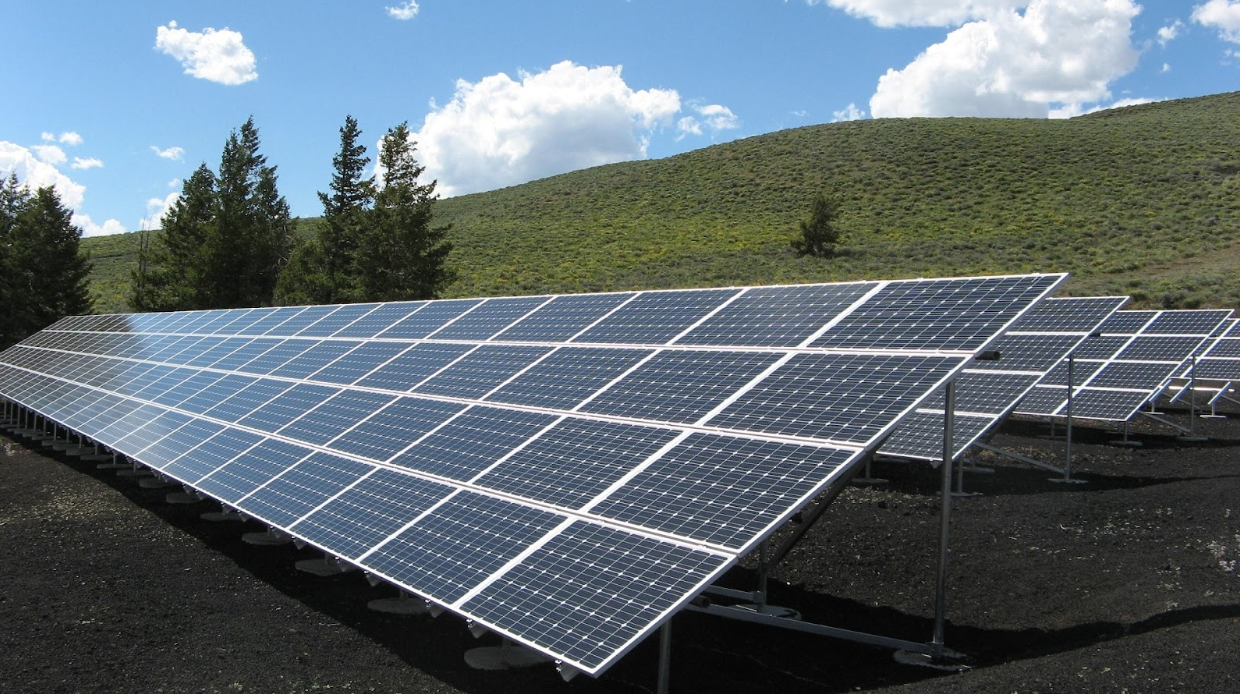
Commercial solar installations in Toronto and the Greater Toronto Area offer businesses a plethora of financial benefits:
- Significantly reduce electricity bills.
- Achieve substantial long-term cost savings.
- Eliminate the volatility of fossil fuel pricing.
- Lock in predictable energy costs.
- Help manage expenses more effectively.
- Protect against future energy price hikes.
Beyond the financial advantages, solar installations also offer significant environmental benefits. Generating clean, emission-free energy helps businesses reduce their carbon footprint and contribute to global sustainability efforts. Additionally, adopting solar technology can enhance a company's environmental reputation, showcasing its commitment to sustainable practices and appealing to the growing number of consumers who prefer environmentally responsible companies.
Key Benefits of Installing Solar Panels for Your Business
The decision to install commercial solar panels is a smart financial move. Generating your own electricity through solar power reduces reliance on the grid and guards against future energy price increases. Despite the upfront costs, the long-term gains are significant, with many businesses seeing a payback period of over a decade, after which the savings continue to grow.
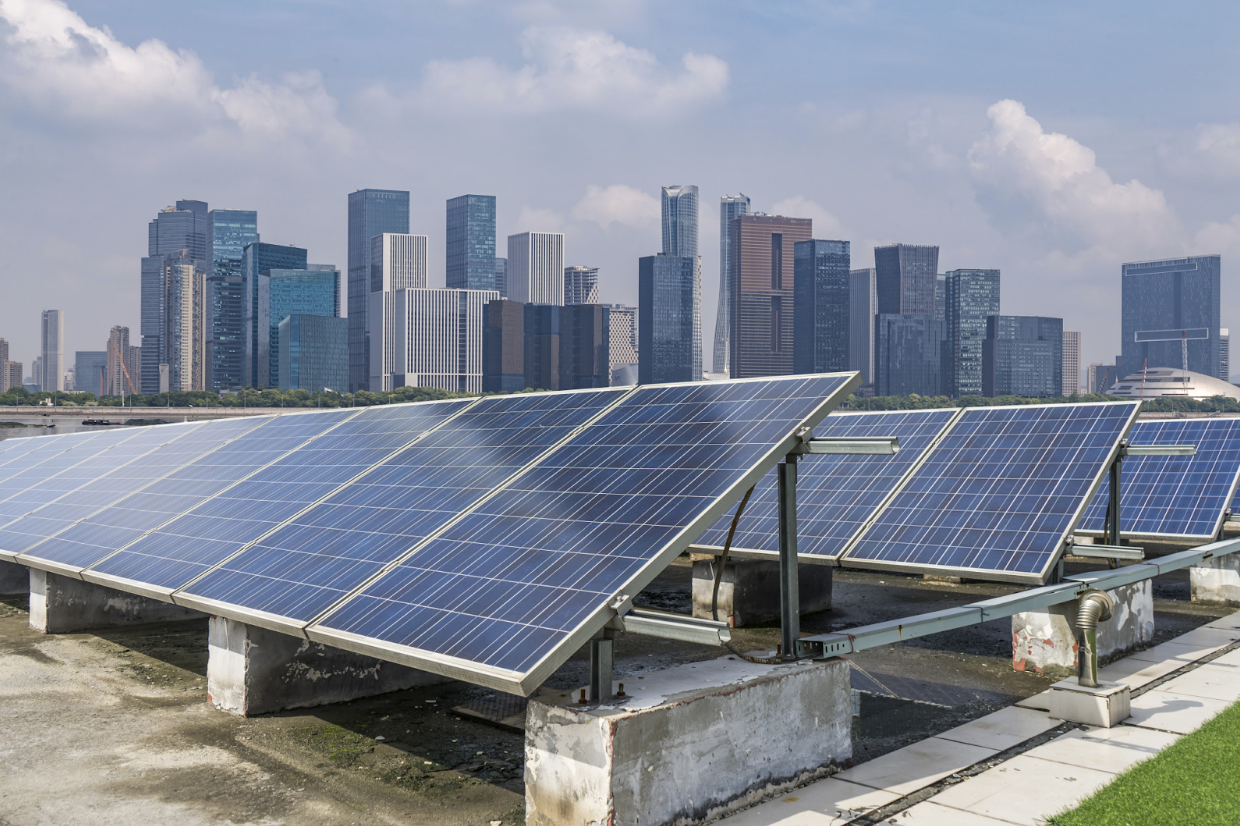
Long-Term Cost Savings
Producing your own electricity allows you to lock in stable energy costs, helping you avoid the volatility of utility rates. Over time, this leads to substantial savings, especially as energy prices continue to rise.
Environmental Impact
Solar panel installation helps businesses reduce their carbon footprint and support the shift to a more sustainable future. They also contribute to improved air quality by reducing the use of fossil fuels.
Brand Reputation and Customer Trust
Going solar enhances your company's public image. Today's consumers value sustainability and are more likely to support businesses that demonstrate environmental responsibility.
Industry Leadership
Businesses that invest in solar power position themselves as forward-thinking and progressive. It's a signal to clients, partners, and competitors that you're committed to innovation and sustainable practices.
Improved Workplace Safety and Reliability
Solar panels reduce the risks associated with electrical systems, contributing to a safer work environment. Additionally, solar power offers more predictable energy management due to its fixed costs and low maintenance needs.
Steps to a Smooth Commercial Solar Installation Process
Deciding to move towards a commercial solar panel system involves several key steps to ensure a smooth transition. The process typically includes:
- An initial consultation
- A thorough site assessment
- System design
- Permitting
- Installation
- Interconnection.
Each step is crucial for ensuring that the solar panels are optimally installed and efficiently connected to the grid.
Site Assessment and Feasibility Study
Before installing solar panels, it is essential to conduct a thorough roof inspection and perform an infrared roof scan to assess the viability of the installation. Collaborating with qualified roofing specialists and solar panel installation experts ensures that all necessary considerations, such as shading, temperature, and panel positioning, are taken into account to maximize the efficiency of the solar panel systems.
Building owners may need to update their roofs' electrical systems to accommodate the new solar system. A comprehensive site assessment and feasibility study help determine the suitability of the commercial property for solar installations, ensuring that all structural and electrical requirements are met before proceeding.
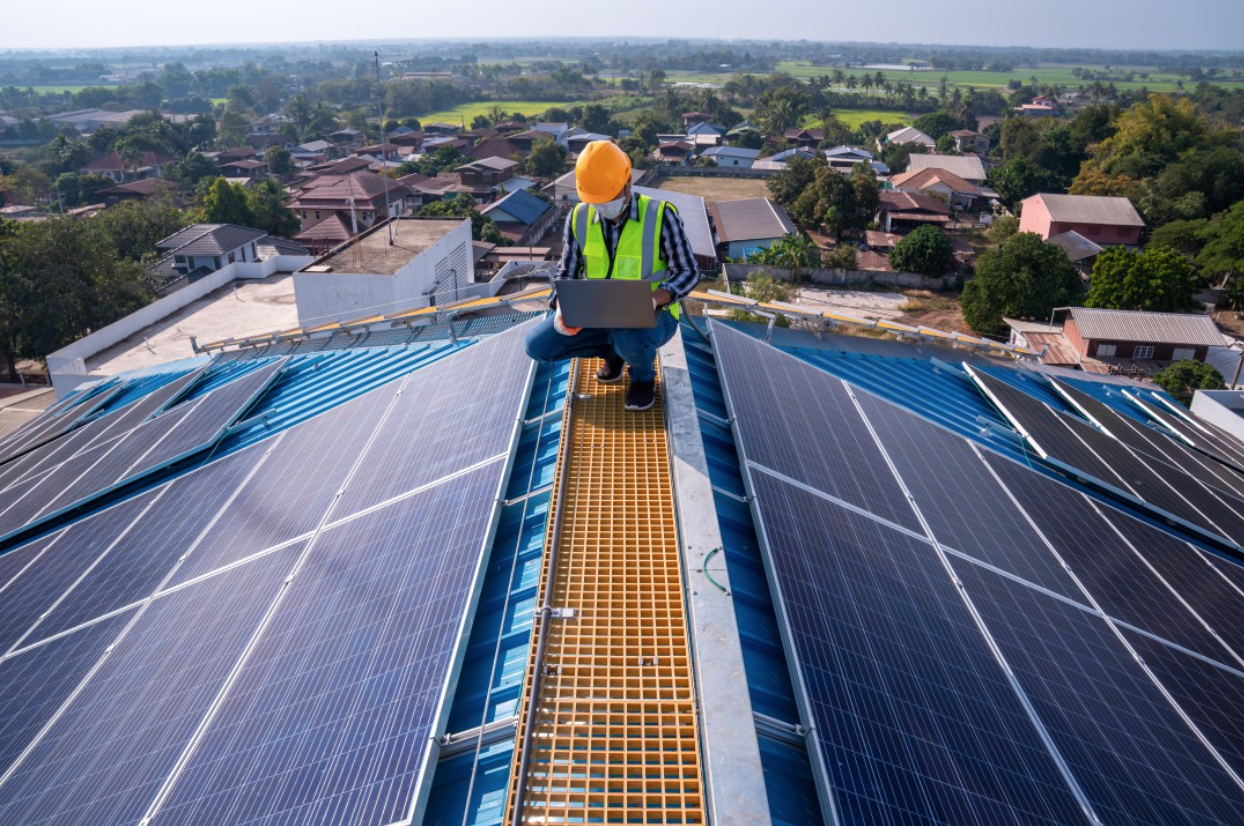
System Design and Permitting
The system design phase is critical for customizing the solar panels to meet the specific energy needs of the business. Solar panels can be mounted using various attachment methods, such as:
- Attachment
- Ballast systems
- A combination of both of these methods depends on the building structure. This customization ensures that the solar panel system is optimized for the unique environment and energy demands of the business, including the solar system.
Permitting is a key part of the solar installation process. A good installer will know how to navigate local requirements and customize the approach to fit your business needs. Taking care of the necessary permits upfront helps avoid delays and ensures everything runs smoothly and by the book.

Installation and Interconnection
Preparing for installation day means working closely with your solar installer to keep business operations running smoothly. This might include scheduling the work during slower hours, moving company vehicles, or informing employees about any temporary changes on-site. A little planning goes a long way in making the process seamless.
When mounting the solar panels, your installer will choose the best system based on your building's structure, whether attached, ballasted, or hybrid. These options allow flexibility while ensuring the system remains secure and efficient.
Local companies in GTA and Toronto handle everything from system design and permits to the actual installation. Solar panel experts assess the roof or ground, electrical systems, and environmental factors like shading, heat, and panel orientation to optimize energy production. Their expertise helps ensure the entire process is handled effectively from start to finish.

Choosing the Right Commercial Solar Installer
Choosing the right solar installer can make all the difference in the success of your project. Experienced installers are better prepared to handle any unexpected challenges and can guide you through the process with confidence. Look for certifications from trusted organizations like the Canadian Solar Industries Association (CanSIA) and the Electrical Safety Authority (ESA)—these show that the installer meets industry standards and follows strict safety protocols.
Checking references from past clients is a great way to get a sense of installers' work quality and reliability. A good solar provider will tailor their services to fit your property's specific energy needs and layout. This level of customization ensures the system is set up for maximum efficiency and long-term performance.
A trustworthy installer should also offer a solid warranty that covers both the installation and the equipment used. A comprehensive warranty gives you peace of mind, knowing that any issues that come up after installation will be handled quickly and professionally.
Financial Incentives and Support for Solar Installations
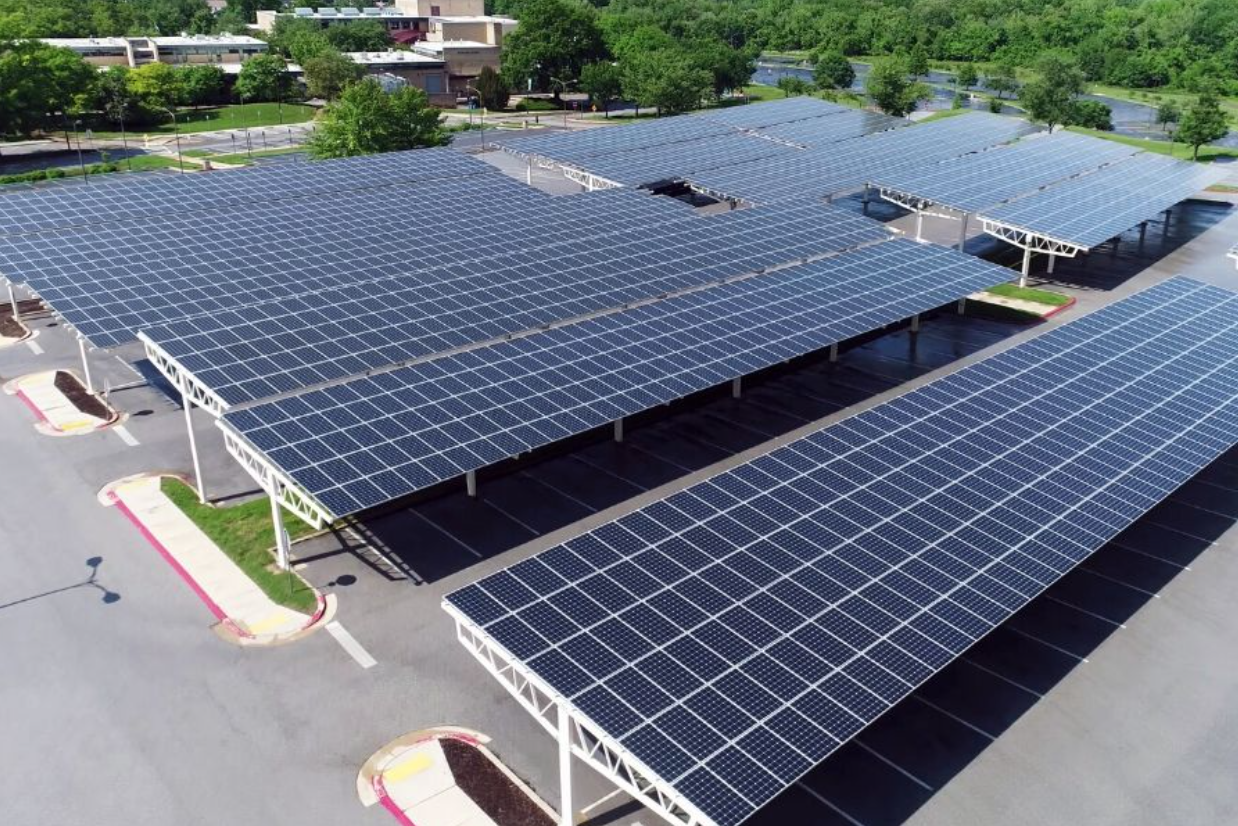
Financial incentives can make a big difference when it comes to the affordability of commercial solar panels installations. Both federal and provincial programs offer grants that can significantly cut down costs, and cover a significant portion of the total installation expenses.
Across Canada, there are also various rebates, low-interest loans, and tax credit programs available to help businesses make the switch to solar. These incentives ease the upfront investment and improve the overall return on your solar project.
Clean Technology Investment Tax Credit
The Clean Technology Investment Tax Credit offers businesses a refundable tax credit when they invest in eligible clean energy technologies. Available until the 2030s, this incentive is designed to encourage businesses to reduce their carbon footprint and embrace more sustainable practices.
To qualify, businesses must invest in Class 43.1 or 43.2 equipment and meet specific eligibility requirements. The credit applies to qualifying investments made through the end of 2034, making it a valuable long-term opportunity for companies looking to go green.
Canada Greener Homes Initiative
The Canada Greener Homes Initiative offers:
- Interest-free loans to businesses specifically designed for multi-unit residential buildings (MURBs) and other commercial properties.
- Interest-free loans for eligible properties.
- Support for energy-efficient upgrades, making it easier to invest in solar panel installations and other sustainable renovations.
The Canada Greener Homes Initiative supports sustainable upgrades across the country, helping businesses cut down on renovation costs while improving energy efficiency. By taking advantage of this program, commercial properties can lower their energy bills and contribute to a cleaner, more sustainable future.
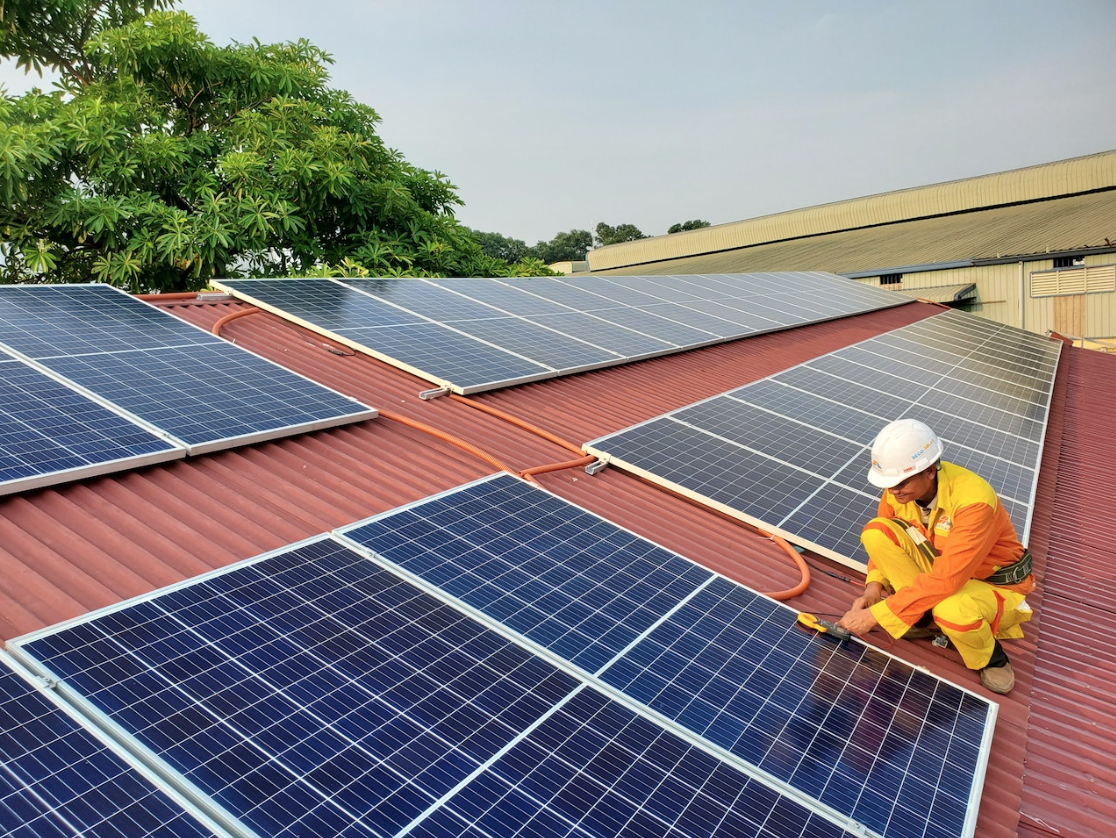
Maintenance Tips for Commercial Solar Panels
Schedule Regular Inspections
Visual inspections should be done at least once a year to keep your solar system running efficiently. These checks ensure everything is operating safely and help catch potential issues early—something trusted solar companies often include in their service packages.
Use Monitoring Tools to Track Performance
Modern monitoring systems can track your energy output and flag any dips in performance. Keeping an eye on these trends allows you to respond quickly and maintain consistent energy production based on energy consumption patterns.
Keep Panels Clean
Annual cleaning is recommended, especially for large-scale installations. Dirt and debris can block sunlight and reduce output. If you're installing solar panels on flat roofs or in dusty areas, regular cleaning can make a noticeable difference in performance.

Watch for Storm Damage
While rare, severe weather can occasionally damage panels. After storms, inspect your solar system for cracks or other visible issues and contact your installer if anything seems off.
Low-Maintenance by Design
Unlike some residential solar panels, commercial systems are built for durability. With no moving parts, they generally require minimal upkeep, making them a reliable renewable energy option for long-term savings.
Maximizing the Benefits of Solar Energy
Utilizing net metering allows businesses to earn credits for surplus energy generated by their solar panels, maximizing the benefits of solar energy and their own energy. This leads to substantial financial savings and makes solar power an even more attractive investment.
Implementing energy storage solutions, such as batteries, ensures a consistent power supply during outages or periods of low sunlight, enhancing energy security. Additionally, businesses can sell surplus electricity back to the grid, further enhancing their financial savings.
Summary
Making the switch to solar energy can feel like a big step, but for many businesses, it pays off in more ways than one. Beyond the obvious savings on electricity bills, solar power can improve your brand's image, showing customers and the community that you're serious about sustainability. It's also a way to take more control over your long-term energy costs, which is especially valuable in today's unpredictable market.
With the right installer, a clear understanding of the process, and some support from government incentives, going solar in Toronto and the GTA has never been more within reach. Whether you're just starting to explore the idea or ready to move forward, now is a great time to look into how solar can work for your business and meaningfully future-proof your operations.
Frequently Asked Questions
How long does a commercial solar panel installation typically take?
A commercial solar panel installation typically takes 1 to 3 months to complete, depending on factors like project size and complexity.
What financial incentives are available for businesses installing solar panels in Toronto?
Businesses installing solar panels in Toronto can benefit from financial incentives like the Clean Technology Investment Tax Credit and the Canada Greener Homes Initiative, which provide rebates, loans, and tax credits to lower installation costs. Taking advantage of these programs can lead to substantial savings.
How often should commercial solar panels be inspected and maintained?
Commercial solar panels should be inspected visually at least once a year and cleaned annually to maintain optimal performance. Regular maintenance is essential for ensuring their efficiency and longevity.
What are the environmental benefits of installing solar panels for my business?
Installing solar panels significantly lowers your carbon footprint, fosters sustainability, and enhances air quality by reducing dependency on fossil fuels. Embracing solar energy can make a positive impact on the environment while benefiting your business.
Can my business sell surplus electricity generated by our solar panels back to the grid?
Yes, your business can sell surplus electricity generated by your solar panels back to the grid through net metering, allowing you to earn credits and achieve financial savings.



